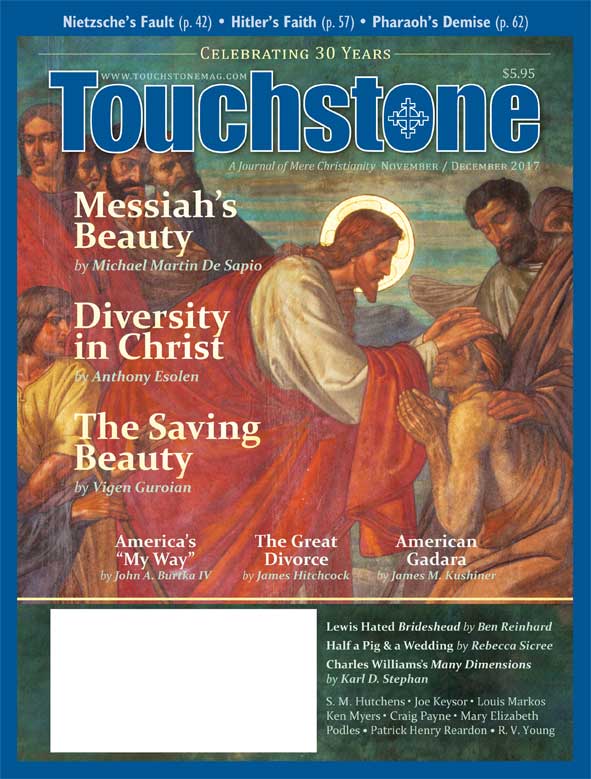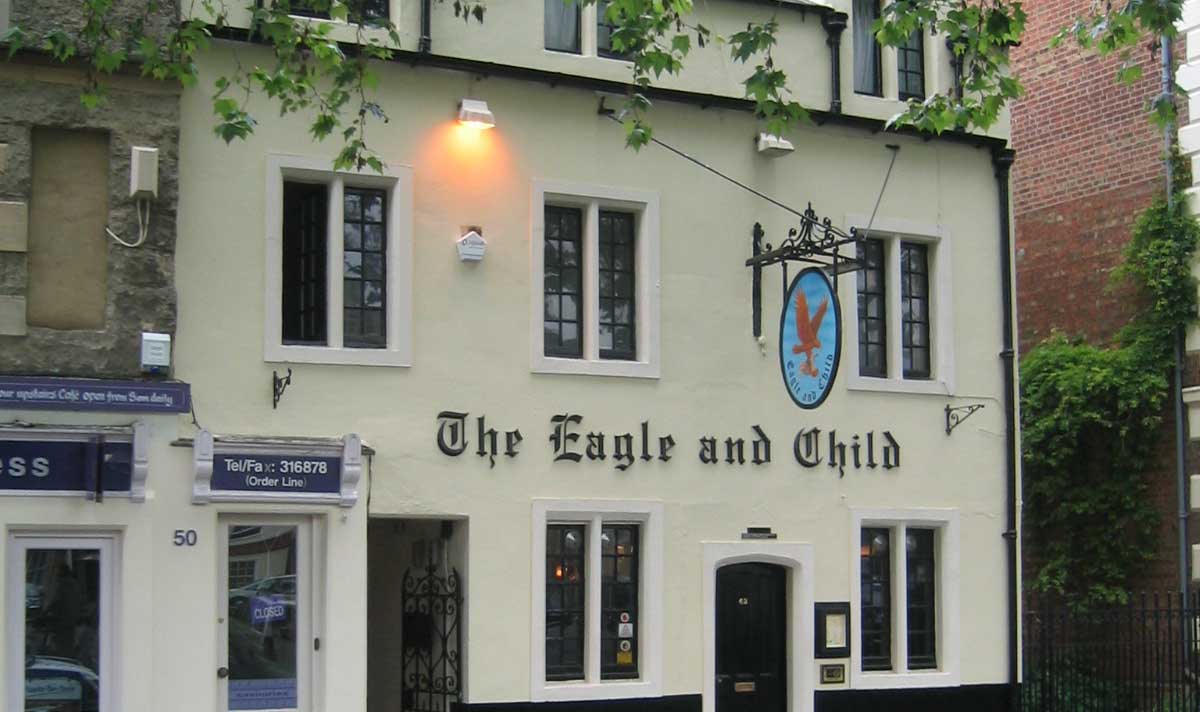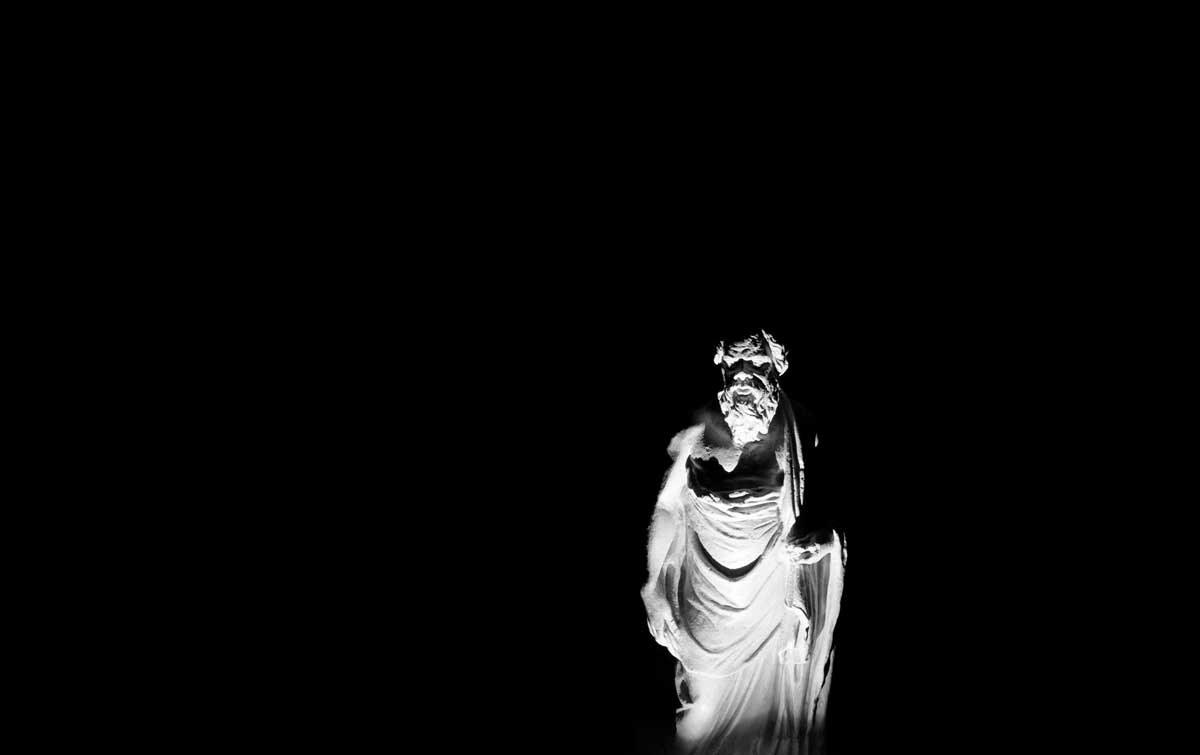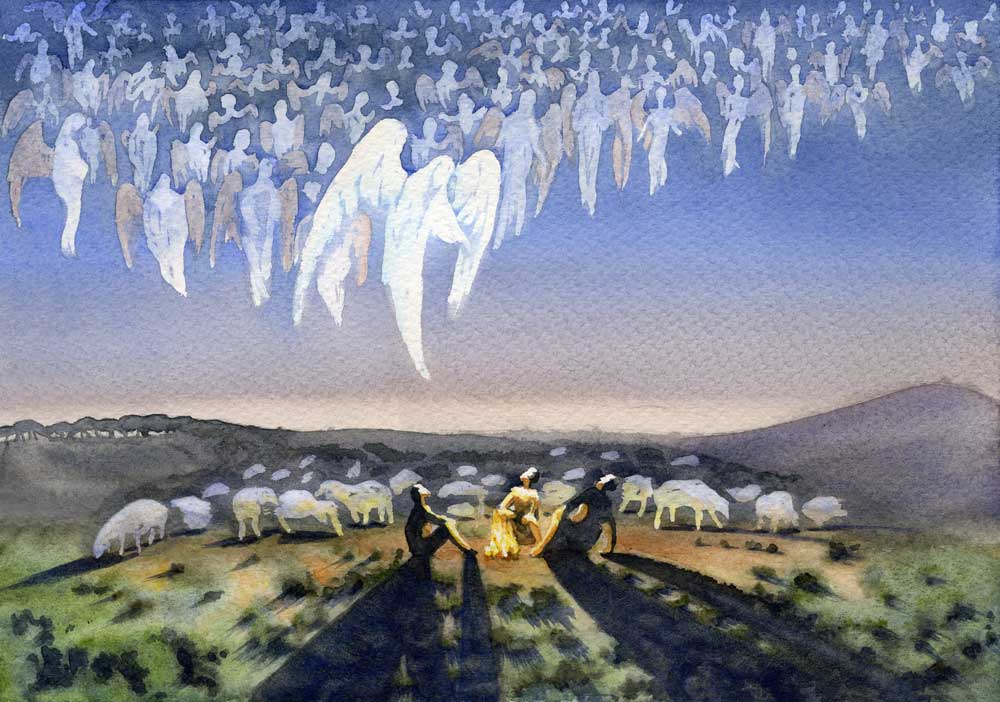View
Odious & Deplorable
Ben Reinhard on C. S. Lewis, Brideshead Revisited & the Middle Things
Time has been the great healer for the conservative poets and storytellers of the twentieth century. Men who were, in their day, some of each other's harshest critics and fiercest rivals have accepted "the constitution of silence / and are folded into a single party." Eliot's feud with Chesterton, Lewis's critique of Eliot, Tolkien's dismissal of Chesterton's Ballad of the White Horse, and the rest have largely faded from memory, and the modern student can speak with affection and comfort of the Catholic Literary Revival, the Inklings, and the Fugitive Poets.
While there is certainly sense in this simplification—what united Eliot, Tolkien, and Chesterton is certainly more important than what divided them—it fails to tell the whole story. Like a manicured lawn, this cultivated version of literary history presents clean lines and a pretty picture. But something is lost there: there is life in the weeds, and the conflicts between members of similar literary parties reveal subtleties of thought and distinctions that would otherwise be easy to gloss over.
C. S. Lewis's critique of Evelyn Waugh's Brideshead Revisited is especially easy to miss, buried as it is in the more than 3,000 pages of his collected correspondence. Indeed, the very existence of the critique is due to fortunate chance; but for outside interference, it is likely that Lewis would never have read Brideshead at all. In 1951, his friend Christian Hardie (to whose son Nicholas The Silver Chair is dedicated) suggested that Lewis read the novel in order to "catch up with the contemporary scene," and she even lent him her copy.
The experiment was less than successful. Lewis toiled through the book, and at one point nearly despaired of finishing it. Once finished, however, he sent a series of letters to Hardie detailing his objections.
The Tiresome Seen Through the Tiresome
The criticisms fall broadly into two categories. The first set of criticisms is formal, focusing, as Lewis explained to Hardie, on judging the novel as "primarily a Thing, an Object, enjoyed for its colour, proportions, atmosphere, its flavor." In this regard, Lewis viewed the novel as a very mixed bag. While he praised its style—ironically, one of the elements of the novel Waugh would come to regret—he had serious reservations about its overall form (that is, its "color, proportions, and flavor"), especially with regard to the plot and characters.
The integrity of the plot proved a particular problem for Lewis. Waugh had claimed that the novel's theme was "the operation of divine grace on a group of diverse but closely connected characters." If that is so, then the central scene in the story is certainly Lord Marchmain's deathbed act of contrition; in his final moments, and after years of rebellion, he makes the Sign of the Cross.
This is the moment of grace that saves the family: Lord Marchmain's salvation, Julia's reversion, and Charles's eventual conversion all flow from this simple gesture. In the novel's own stated terms, this scene triggers the avalanche that demolishes Charles's cozy, self-satisfied world; it is the "twitch upon the thread" that brings the wandering sinners back to God. Lord Marchmain's confessor, Father Mackay, provides the final gloss on the event: "Well, now, and that was a beautiful thing to see. I've known it happen that way again and again. The devil resists to the last moment and then the Grace of God is too much for him." Divine grace has operated on the characters, and God has triumphed.
Lewis, however, would have none of it, and he detailed his objections in two separate letters to Hardie. In the first, he notes that the scene was, for him, a failure, as "a twitch-on-the-thread conversion doesn't seem . . . to be capable of artistic presentation." A year later, he explained himself more fully: given Waugh's presentation of the scene, "the supposedly good end of the old rake had simply to be taken on trust."
That is, in the absence of further evidence, the reader cannot draw any sure conclusion regarding the "operation of divine grace" on Lord Marchmain. The outward sign of contrition is in itself insufficient. He might have made the Sign of the Cross, as Lewis says, unwittingly or out of "momentary sentiment" or even, as one of my colleagues has observed, out of plain spite—and the reader has no way of telling the difference. Given the importance of the theme to the novel and of this scene to the theme, Waugh's failure here is considerable.
Still harsher criticisms are reserved for Waugh's characters. Waugh believed that the introduction of faith into Brideshead made for more concrete, realistic characters; Lewis disagreed. Of all the characters in the novel, Lewis says, only Julia is "alive and worth reading about." Sebastian, for all his eccentricities and extravagances, is "dull" and "a terrible bore on any terms." Worst of all, perhaps, is Charles. Lewis explains that an author can show us a mad world through the eyes of a sane character, or a sane world through the eyes of a madman, but never a mad world through mad eyes. But this is what Waugh attempts—Charles is cut from the same cloth as Blanche, Mottram, and Lord Marchmain. As a result, Lewis says, Brideshead is merely the tale of "the tiresome seen through the eyes of the tiresome."
These are admittedly strong words for one of the most acclaimed novels of the twentieth century. For all this, none of these formal criticisms is sufficient to prepare the reader for Lewis's more visceral reactions. We can call a flawed work deficient, dull, or clumsy—or just plain bad—but Lewis's criticism of the novel goes far beyond this. In his first letter to Hardie, he calls Brideshead "a kind of literary hair-shirt" particularly appropriate for Lenten mortification. His views did not soften with the passing of time; one year later, he referred to it as "that odious work" and refused to consider its literary legacy; four years after that, he called Brideshead—along with the rest of Waugh's novels—"deplorable."
The vehemence of Lewis's reaction here calls for special comment, as it runs contrary to his own critical principles as stated in Studies in Words. There (while -acknowledging that the critic will naturally hate a work he believes to be very bad) Lewis maintains that "the function of criticism . . . is 'to get ourselves out of the way and let humanity decide'; not to discharge our hatred but to expose the grounds for it; not to vilify faults but to diagnose and exhibit them." The reader can perhaps be forgiven for feeling that flat characters and improbable conversions do not, in themselves, justify such strong reactions.
Similar Experiences, Antithetical Views
Many possible reasons could be suggested for Lewis's rejection of Waugh; I will follow the one clue Lewis provided in the letters. In his second letter to Hardie, Lewis confessed to a complete lack of sympathy for Waugh—or, perhaps more accurately, for Charles Ryder. At a certain level, this lack of sympathy is surprising; on the surface at least, there are many similarities between the living man and the fictional character. Both Lewis and Ryder lost their mothers at an early age, both lost their childhoods to boarding school, and both struggled (occasionally, at least) with difficult fathers. Both served in the army, and both were middle-class Oxford men in the early 1920s. But these superficial similarities serve to highlight the deeper differences, for although they had similar experiences, Ryder and Lewis could not have been more different in their responses.
This difference-in-similarity lies at the heart of Lewis's reaction to Brideshead. To put it simply, Charles Ryder's view of the world is antithetical to the one built and defended by Lewis over his long literary career. In the first place, unlike Ryder, Lewis was proud of his middle-class background; in Studies in Words, he notes that the class "provided the world with nearly all its divines, poets, philosophers, scientists, musicians, painters, doctors, architects, and administrators." By contrast, Waugh's great representatives of the middle class were unenlightened men like Hooper and Rex Mottram—a fact not lost on Lewis, who complained that his circle was most definitely not made up of Hoopers.
Moreover, for Lewis, "the frontier where the aristocrats and the middle class meet" is "one of the great nurseries of civilization." Members of both groups benefit: the middle class is refined, the aristocracy ennobled. On this point, Waugh is pessimistic to the point of misanthropy. The most obvious example, of course, is Charles Ryder, for whom the meeting of bourgeois and aristocrat was the occasion for aesthetic awakening (which he rates very highly) and for moral and spiritual deadness (which he excuses—if he even believes it needs to be excused).
But there are other examples as well. Lady Marchmain is surrounded by a circle of scholars and literati, the sort of coterie specifically praised by Lewis. But seen through the "distorting mirror" of Charles's narration, the defining characteristics of this circle are the sycophancy and snobbery embodied in the person of Mr. Samgrass. On this critical point, Waugh's cynicism defeated Lewis's patience as a reader: "The narrator's spontaneous dislike [of] all nice people . . . has, I suppose, a theological significance?"
Deeper divisions are revealed in the two authors' attitudes towards culture itself. Aesthetic awakening, not culture in the broader sense, had mattered to Charles. In the end, however, even the aesthetic awakening may not matter much; though the "age of Hooper"—of business and efficiency and suburbs—is swallowing up the old order, the small red flame is lit before the tabernacle at Brideshead "in a beaten copper lamp of deplorable design." Despite, or rather, because of the deaths of his intermediary loves, Charles finds love in the chapel and emerges at peace; Waugh's Grace, once again, triumphs. Lewis, by contrast, placed considerably more emphasis on Nature, and even though, as Alistair McGrath has noted, he was never part of Waugh's "elitist student culture," he rated culture of all kinds more highly.
The difference between Lewis and Waugh on this point is complicated: Lewis is at once more optimistic about the inhabitants of the new suburban world—"these traduced people," he told Sayers, are in general "far less confused about art & reality than most of the 'clerks'"—and more serious about the lasting value of culture. As he sees it, civilizational order—the product of the mingling of the bourgeoisie and the aristocracy—is essential for most men. "As long as we live in merry middle earth," Lewis wrote in his Preface to Paradise Lost, "we must have middle things."
Lewis's Limits
This is not, of course, to say that Lewis's view of Brideshead's literary merits is correct. The purpose of this essay is not to validate Lewis's critique of the novel but to understand it, and by understanding it, to get a deeper knowledge of the two authors' critiques of the twentieth century. It may not be too much of a stretch to read Lewis's long intellectual career as a rearguard action defending the middle things. Waugh, through Charles, rejects them.
"That odious work." Even for a critic as impartial and fair-minded as Lewis, there are, apparently, limits.
Ben Reinhard is an assistant professor of English Language and Literature at Christendom College, where he teaches classes in Old and Middle English literature. He lives with his wife and children in Front Royal, Virginia.
subscription options
Order
Print/Online Subscription

Get six issues (one year) of Touchstone PLUS full online access including pdf downloads for only $39.95. That's only $3.34 per month!
Order
Online Only
Subscription

Get a one-year full-access subscription to the Touchstone online archives for only $19.95. That's only $1.66 per month!
bulk subscriptions
Order Touchstone subscriptions in bulk and save $10 per sub! Each subscription includes 6 issues of Touchstone plus full online access to touchstonemag.com—including archives, videos, and pdf downloads of recent issues for only $29.95 each! Great for churches or study groups.
Transactions will be processed on a secure server.
more on C. S. Lewis from the online archives
more from the online archives
calling all readers
Please Donate
"There are magazines worth reading but few worth saving . . . Touchstone is just such a magazine."
—Alice von Hildebrand
"Here we do not concede one square millimeter of territory to falsehood, folly, contemporary sentimentality, or fashion. We speak the truth, and let God be our judge. . . . Touchstone is the one committedly Christian conservative journal."
—Anthony Esolen, Touchstone senior editor












